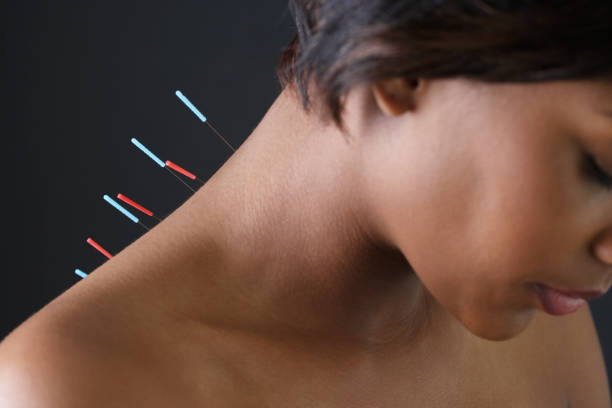- Art therapy
- Music therapy
- Aromatherapy
- Meditation
- Yoga
- Walking
- Reiki
- Tai chi
Each therapy targets your mind, body, and soul using meditative techniques and creative exercises that help improve your quality of life. Some treatments, such as art therapy and music therapy, are most effective when working with a licensed practitioner.
Research has established that these mind, body, and soul therapies effectively relieve stress, anxiety, and pain.
Massage Therapy

Massage therapy promotes immunity and reduces anxiety, pain, and fatigue—massage therapy and progressive muscle relaxation help boost protective white blood cells.
If you’d like to include massage therapy into your routine, make sure you work with a licensed practitioner trained to avoid or work around sensitive areas affected by traditional treatment.
Q&A: What Are Remedies For Chemotherapy Bruising?
Acupuncture

Acupuncture is a major part of traditional Chinese medicine that may help ease cancer symptoms and the side effects of treatment. Acupuncture requires a practitioner to put sterile, hair-thin needles into acupuncture points — specific points on your skin — then gently move them to stimulate your nervous system.
Acupuncture can help:
- Reduce fatigue
- Control hot flashes
- Reduce vomiting
- Relieve pain
- Help decrease nausea
Occasionally, practitioners incorporate herbal supplements into an acupuncture treatment. Individuals undergoing chemotherapy shouldn’t use herbal supplements because they’re known to reduce the effectiveness of chemotherapy. Be sure to speak with your practitioner about your needs and what techniques they may use for you.
Talk With Your Physician
Make sure you speak with your physician before you begin these alternative treatments. Your physician can tell you if complementary or alternative therapies will be useful for the stage of your cancer and steer you away from dishonest products.
They can also tell you what research is available on different treatments, what isn’t known about them, and whether they’re safe. Your physician can also write you a referral or suggest an appropriate treatment. Once you have all the knowledge, you can make a truly informed decision.
Alternative treatments shouldn’t be used in place of your doctor-recommended plan. Alternative treatments aren’t considered an effective alternative to first-line treatment for breast cancer.
Although many major insurers cover alternative treatment, some may not. Because of this, there may be a high out-of-pocket cost. You should study the type of treatments you’re interested in and whether they’re covered before dedicating your time, money, and energy.








